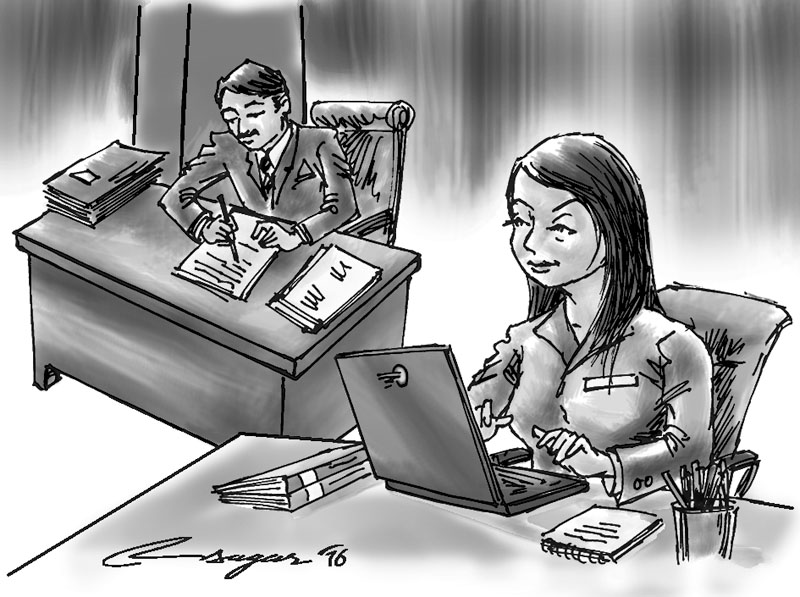The unfinished business: Gender parity
What is now needed is a genuine and permanent shift in attitudes and behavior. Many of the biases holding women back are unconscious; and, by their very nature, these blind spots cannot be tackled by statements of intent alone. Tackling gender inequality will require us to identify where, how, and why these biases materialize, and to develop systematic strategies and interventions to root them out
When it comes to the importance of gender equality in the workplace, the message has clearly gotten through to those at the top. Surveys – including those conducted by my own organization – consistently show that business leaders understand the need for equal treatment of men and women in the workforce.
Indeed, my own conversations with senior businesspeople around the world confirm that progress clearly is being made. The vast majority recognize the issue as imperative to their companies’ success and have implemented measures to promote gender parity in their organizations. And yet, for all the fine words, much more remains to be done before gender parity is actually achieved.
The facts speak for themselves. There is still a pay gap in every country in the world, with men earning more than women for similar jobs. Likewise, the percentage of seats on corporate boards occupied by women appears to have stalled at just over 17%.
This bias has not gone unnoticed – especially among female employees. In a 2015 PwC global survey of female millennials born between 1980 and 1995, half of those working in financial services said they believed that men received more favorable treatment when it came to promotions. More than 70% said that as much as their organizations talk about diversity, in reality, opportunities remain unequal.
Interestingly, other studies conclude that when women are provided with the opportunity to perform on an equal footing with men, they more often than not come out on top. A recent ten-year analysis of 300 start-up investments backed by venture capitalists in the United States showed that companies with a female founder performed 63% better than those with all-male founding teams.
And another of PwC’s research programs, examining the changing faces of billionaires worldwide, discovered what we called the “Athena Factor.” The increase in the number of female billionaires significantly outpaces that among men, with Asia registering the fastest growth in the ranks of self-made female billionaires.
Where women have the opportunity to capitalize on their talents, they are doing so successfully and with gusto. Meanwhile, there is growing recognition of the positive contribution that greater workforce diversity
makes to business performance. And yet, as reflected in the stubborn persistence of the pay
gap, barriers to women’s progress remain.
What is now needed is a genuine and permanent shift in attitudes and behavior. Many of the biases holding women back are unconscious; and, by their very nature, these blind spots cannot be tackled by statements of intent alone. Tackling gender inequality will require us to identify where, how, and why these biases materialize, and to develop systematic strategies and interventions to root them out.
In order to accomplish this, businesses must actively challenge men to help advance women in the workforce. That is why I am proud to be a founding Corporate Impact Champion of the UN Women’s HeForShe movement. Creating real and lasting change will require helping men and women work together.
The business case for doing so is incontrovertible. Not only do women make up half the global population; the same skills needed to work through differences in gender – open-mindedness, humility, empathy – can be used to work across other types of differences, be they cultural, physical, or personal.
It is important, of course, to reassure male skeptics who view gender parity as a threat. In June 2015, I hosted a HeForShe chat on Twitter, and while the conversation was overwhelmingly positive, an obvious concern surfaced: Why should men help promote women to positions for which they themselves are
aiming?
Addressing such concerns will require us to show that we are not promoting some people at the expense of others; gender parity must be win-win, not zero-sum. At PwC, this is being addressed by hosting conversations in which men and women discuss gender issues collaboratively and respectfully, and by working with both genders to challenge double standards and acknowledge potential blind spots.
Recent research suggests that, at the current rate of progress, it will take another 80 years to reach gender parity. That is not good enough. Let us all commit to achieving it in our lifetimes – for the benefit of everyone.
Nally is Chairman of Price water house Coopers International Ltd., the coordinating and governance entity of the PwC network.
© Project Syndicate, 2016
www.project-syndicate.org






